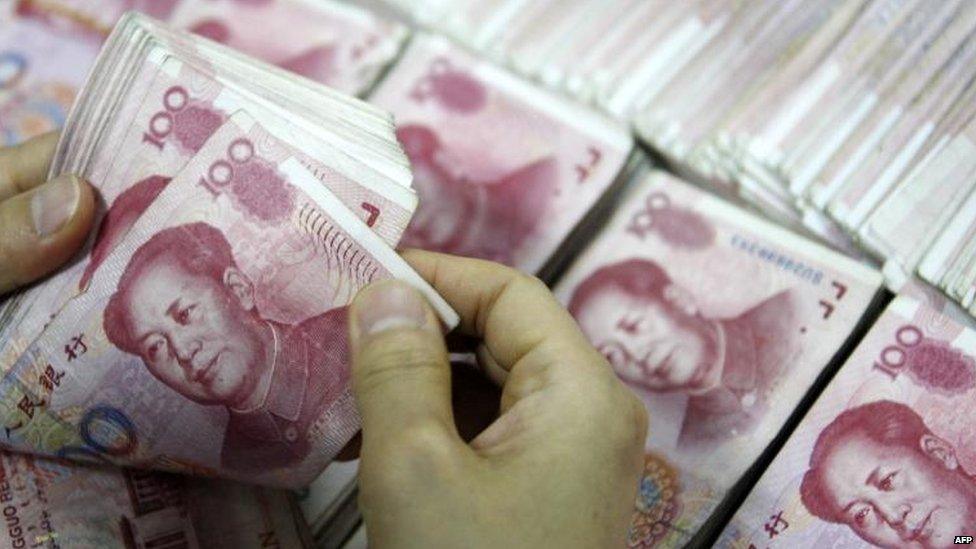China slowdown forces devaluation
- Published
- comments

The world's investors have been obsessing with when the US Federal Reserve will end the era of near-zero interest rates, as America's economy returns to almost-normal shape.
But maybe they've been looking at the wrong monetary tool and the wrong economy, in respect of what matters to the flows of capital across borders and economic activity.
Because the decision of the People's Bank of China (PBOC) to devalue the yuan by 1.9% will have global ramifications, in the short, medium and long-ish term.
Immediately it will increase the competitiveness of China's exports at a time when the country's economy is growing at its slowest rate for six years - and when many economists fear that the slowdown will become much more painful and acute.
And for all the spur to growth it may give, the devaluation will reawaken concerns that Beijing is still a million miles from having re-engineered the Chinese economy to deliver more balanced growth based on stronger domestic consumer demand.
The weakening of the currency will also put the US Fed on the spot.
In effect China is exporting deflation to the US - and so some will argue that the Fed should find an elegant way to back away from its recent signalling that September will see the first rise in interest rates since the Crash of 2008.
Or to put it another way, in terms of US manufacturers and exporters, Beijing has done the monetary tightening that arguably the US economy needs.
As for the medium term ramifications, China will yet again spark concern in Congress that it engages in unfair trade competition.
Doubtless presidential candidates, especially on the Republican side, will complain more about China's attempt to rebuild export market share than fret about the implications of its seemingly unstoppable slowdown.
In the longer term it is unclear whether the devaluation will set back China's ambitions for the yuan (also known as the RMB) to become a reserve currency, as per the IMF's definition.
IMF economists and central bankers who adjudicate reserve currency status take into account whether a central bank forces devaluations or revaluations in a way that distorts the operation of a free market.
The PBOC is saying that in weakening the yuan overnight it is also moving to a more market-determined exchange rate.
And that may be so, in the sense that in recent weeks all the market pressure on the yuan has been downward - because of the unfortunate fact that the flaws in China's economy have become more and more conspicuous.